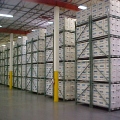So you’re looking for a new car, but is it better to lease or to buy? Traditionalists will tell you that if you lease you’ll have nothing to show for it at the end of the term. But that doesn’t take account of the costs of buying, the money you need upfront and the amount you lose in depreciation when you come to sell.
Does this mean that leasing is always going to be better? It really depends on your circumstances, so let’s have a look at the key factors to help you decide.
The Pros
The biggest advantage of leasing a car is having lower payments. Compared to buying, you’ll have a lower down payment and – since you’re only paying for depreciation, not the whole car – lower payments over the life of the deal. Of course, there are other options such as loans and hire purchase too.
This can help you drive a better car than you would otherwise be able to afford, especially if you choose carefully and go for a model that has a reputation for low depreciation. Companies such as totalmotion.co.uk that offer car leasing have a range of deals to choose from.
Another advantage is the ease of switching when the lease comes to an end. You simply hand back the keys and, having negotiated a new deal for car leasing in Leicester or elsewhere, drive away in a new model. You don'[t have to worry about part-exchanging or selling your old car.
If you’re self-employed or run your own business, then leasing may be a better choice, as you may be able to claim some of the cost against tax.
The Cons
As with renting a house, leasing a car means that you don’t own anything at the end of the deal. However, you need to offset this against the lower monthly costs, so you will end up with more money in the bank.
If you need to end the lease deal before it ends, then you’ll have to pay a penalty. You need to ask yourself how stable your life will be over the term of the lease. Are you planning on getting married, having kids or moving home? All of these things could mean you end up with an unsuitable car.
The same thing applies to mileage. Lease deals usually limit you to a certain number of miles per year – if you exceed the limit, you’ll end up paying more. Again, you need to think about what may happen over the term of the lease You may, for example, change jobs and end up travelling further to work.
When considering leasing, you need to weigh up all of the options. If you buy a car with the intention of keeping it for seven or eight years, then it won’t be for you. On the other hand, if you can commit to a two- or three-year deal and know your mileage won’t run out of control, then it can be an attractive proposition.







Recent Comments